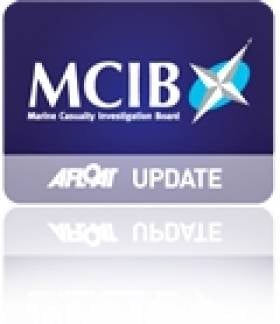Displaying items by tag: Ian Day
Quo Vadis Deaths Result of Misadventure, Says MCIB Report
Investigators have published their investigation report into the death of two yachtsmen off Inishboffin in October last year.
Donal McEllin, 63, and Ger Feeney, 56, died while attempting to return to their motor yacht Quo Vadis in the early hours of 10 October.
The inquiry by the Marine Casualty Investigation Board (MCIB) found that the pair had set off for the yacht - which was moored in Inisboffin Harbour - on a motor-driven inflatable tender after several hours socialising in Day's Pub on the island.
The report also found that they had declined an offer to be ferried back to the yacht.
A witness, Ian Day, recounted that he drove his jeep to the end of the pier and used his headlights to assure himself that the tender had reached the vessel. Though it had been agreed with both men that they would turn off the external lights on the vessel when they safely boarded, it was assumed that they had forgotten.
The bodies of both men were discovered the following morning. Mr. McEllin’s body was found lying on West Quarter Beach adjacent to where the vessel was moored, while Mr. Feeney’s body was found afloat, lying under the upturned tender. Mr. McEllin’s lifejacket had inflated but was entangled around his neck, indicating that the groin strap was not properly tied.
Based on the available evidence, the MCIB concluded that the deaths were the result of attemping a night-time transfer from a small inflatable boat to a larger vessel swinging on its mooring, combined with "possible tiredness and diminished human performance resulting from the effects of alcohol".
The full MCIB report is available for download below.





























































